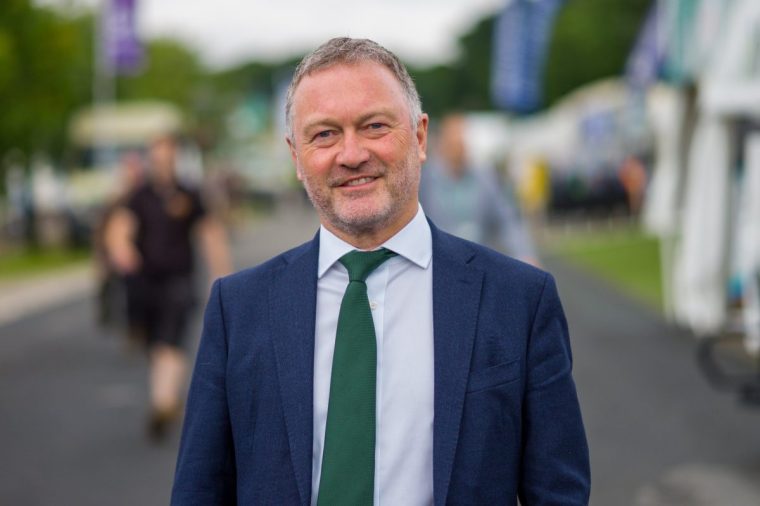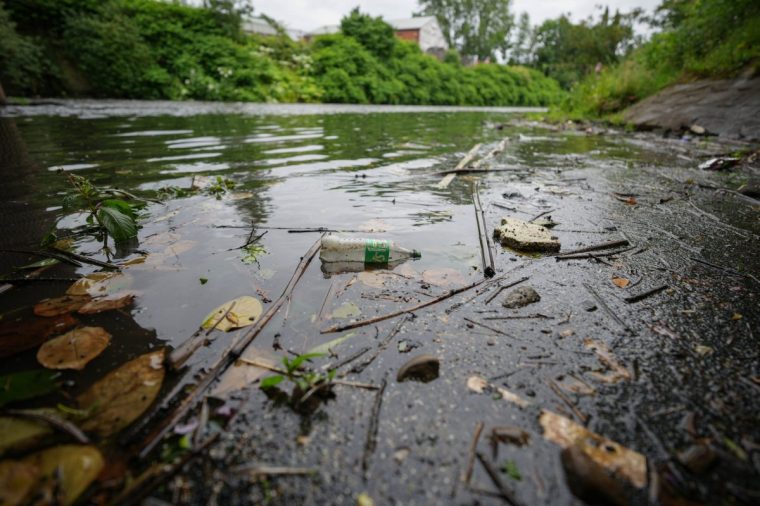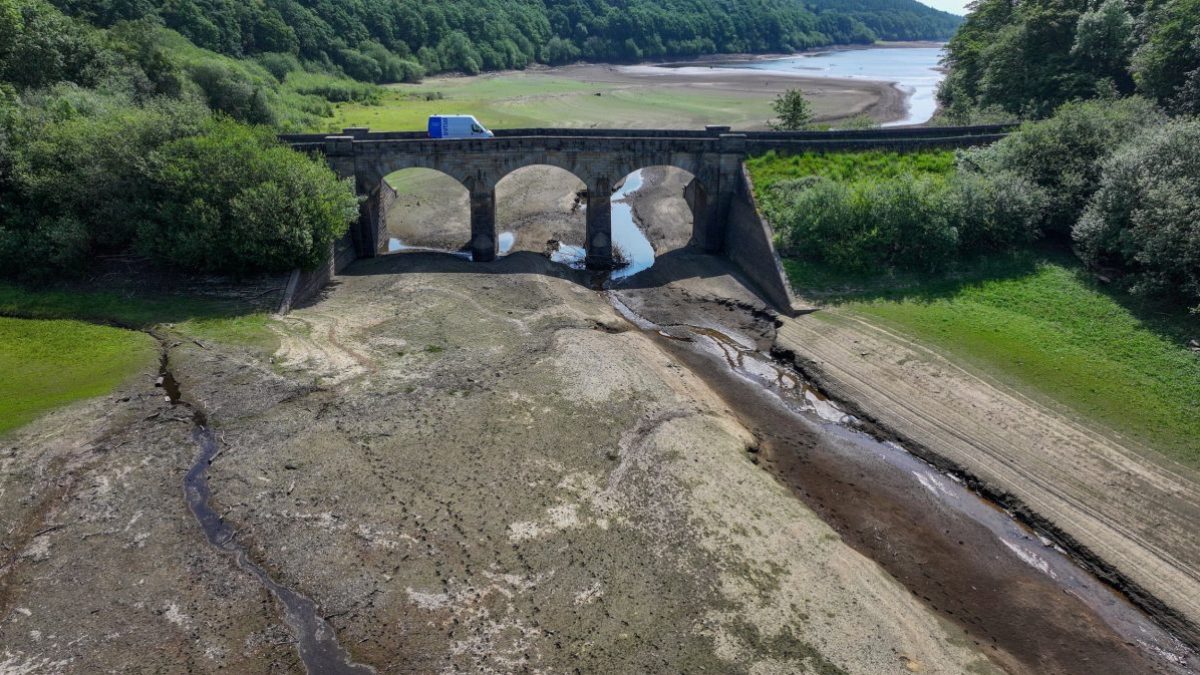The public was unaware of how close the country was to bringing in water rationing says Environment Secretary Steve Reed – who warns that fixing the system will take years
Britain was less than 10 years away from having to implement water rationing, with the taps being turned off during the day, as a result of the mismanagement of the water system, the Environment Secretary has said.
Steve Reed said ahead of the last election that it was projected that demand for water would outstrip supply, which would have forced the Government to limit the amount of water available to the public by the mid-2030s.
It comes amid growing concerns over water scarcity in the UK, and follows the hottest June on record. Parts of the country are expected to see temperatures rise above 30°C again next week.
In an interview with The i Paper, Reed said that the public was unaware of how close the country was to bringing in rationing for water, as he warned that rebuilding the country’s foundations, such as fixing the collapsing water system, cannot be done in just five years.
The Environment Secretary made the warning amid growing public frustration over the pace of change.
“The public, by and large, were not aware that at the time of the last general election, this country was looking at water rationing within 10 years because there was not enough water to meet the demands of our population,” Reed said, speaking one year on from Labour’s landslide election victory.
Large infrastructure projects, such as new housing developments as well as new industries, such as giga-factories and data centres, which require water to cool their systems, have put huge additional strain on water supplies in recent years.
“They can’t operate without vast amounts of water,” Reed said. “Now, on the projections, by the mid-2030s we were due to start seeing the demand for water outstrip supply, and when that happened in Mediterranean countries, it led to the water being turned off at certain times of the day, and that is what the UK was facing.”
Reed said the additional financing secured after the last spending review undertaken by the regulator Ofwat, amounting to £104bn over the next five years, meant the resources were there to build the necessary infrastructure, such as reservoirs and reducing leakage, to prevent rationing in the future.
 Steve Reed warned that despite the clamour for improvements, it will still take years for the public to see significant change in the country’s rivers, lakes and seas (Photo: Ian Forsyth/Getty)
Steve Reed warned that despite the clamour for improvements, it will still take years for the public to see significant change in the country’s rivers, lakes and seas (Photo: Ian Forsyth/Getty)
The Cabinet minister praised The i Paper’s Save Britain’s Rivers campaign, which he said had “helped highlight to the public the scale of the sewage scandal under the previous government” adding that the campaign had “put wings under this government’s intent to clean up the mess”.
But he warned that despite the clamour for improvements, it will still take years for the public to see significant change in the country’s rivers, lakes and seas.
“By the time of the next election, there will be a dramatic reduction in pollution but the work cannot be done over just five years.
“It will take longer. There simply are not the number of people to do the work or the amount of concrete or other materials to make sure that we can upgrade all of the water pipes over just five years, so it will take longer,” Reed said.
 Treated effluent flowing into the River Irwell from the Bolton Wastewater Treatment Works operated by United Utilities Ltd on 24 June, 2025 (Photo: Christopher Furlong/Getty)
Treated effluent flowing into the River Irwell from the Bolton Wastewater Treatment Works operated by United Utilities Ltd on 24 June, 2025 (Photo: Christopher Furlong/Getty)
It comes as consistent polling shows Labour trailing Reform UK, with a major survey by More in Common showing that voters believe this Labour administration is as dysfunctional as the Conservative government that preceded it.
In a glimpse of how Labour will seek to fight the next election, Reed said the party will look to show the progress it has made while in power and will call on voters to let them complete the job of fixing the country.
“The point here is we’ve got the building blocks in place,” he said. “People will see the work begin. They will see progress.
“By the time of the next general election, we will be able to point to a record of achievement, and we’ll be able to say to the British public if you want us to finish the job, we’ve shown you what we’ve already done, and that performance is proof that we will finish the job if we’re re-elected.”
What do other countries do to save water?
- In Spain, where droughts have worsened in recent years, some municipalities now restrict water use to just a few hours per day during emergencies. In 2022, the town of Vacarisses, near Barcelona, allowed residents to access tap water for only four hours daily. Garden watering, car washing and filling private pools were banned, with fines imposed on rule-breakers. The Catalan government later introduced tiered water limits per person, with households exceeding them facing surcharges.
- Australia has a long-established system of mandatory water restrictions, which escalate in severity during dry spells. Under Level 3 restrictions, for instance, residents in cities like Sydney are barred from using sprinklers or hosepipes altogether, and can only water gardens by hand at limited times. Households are also encouraged to install greywater systems, which reuse wastewater from sinks and showers for irrigation.
- In Singapore, where water is scarce, the government has invested heavily in recycling. Its NEWater programme purifies treated wastewater using microfiltration, reverse osmosis and ultraviolet disinfection. This ultra-clean recycled water now meets up to 40 per cent of national demand, supplementing imports from Malaysia and rainwater harvesting.
- In South Korea, high-tech smart meters have been rolled out to track real-time water use and detect leaks. In Seoul, households can monitor their consumption through a mobile app, while municipal systems automatically alert authorities to excessive or suspicious usage.
- In rural southeast Asia, many homes still rely on composting toilets, which require no water and turn human waste into fertiliser. These systems are widespread in remote parts of Vietnam, Laos and Cambodia, where piped sewage is unavailable and conserving water is essential.
By Eleanor Langford
